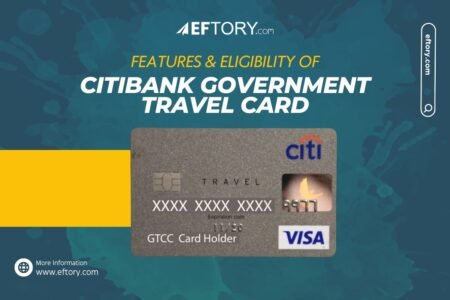When choosing the best credit card for traveling to Europe there are certain factors that should be considered so as to get the best features and benefits. Such factors include; No foreign transaction fee, highly rated travel reward programs, travel insurance, and greater acceptance. Below we will outline some of the best credit cards for traveling to Europe by 2025.
Key Features to Look for in a Travel Credit Card:
- No Foreign Transaction Fees: To avoid additional costs when making international purchases.
- Rewards Program: Generous points or miles on travel-related and everyday purchases.
- Travel Insurance: Coverage for trip cancellations, delays, lost luggage, and rental car damage.
- Global Acceptance: Credit cards that are popular in Europe and are widely accepted (Visa and MasterCard are usually accepted more often than American Express in some European countries).
- Customer Service: 24/7 support, which is particularly beneficial when one is on a trip.
The right credit card when traveling to Europe will depend on your spending habits, rewards program, and the benefits that will be useful during the trip.
Best Credit Card for Traveling To Europe in 2025:
1. Chase Sapphire Preferred® Card:
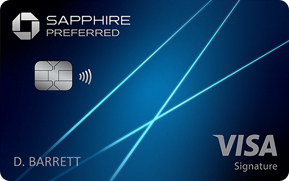
This is a highly versatile and valuable card for travelers particularly because of its extensive travel insurance, flexible redemption options, and ability to earn travel credits and rewards in several categories such as dining.
APR: 21.24% – 28.24% Variable APR

Pros:
No Foreign Transaction Fees: Spend less on your purchases abroad.
Travel Rewards: Double points (2x) on all travel and dining, base points (1x) for other purchases.
Sign-up Bonus: A high sign-up bonus that can easily be worth several hundred dollars in travel reward.
Travel Insurance: Such insurance provide coverage’s to trip cancellation/interruption, auto rental collision damage waiver, and baggage delay insurance.
Flexible Redemption: Get 25% more points when you redeem through Chase Ultimate Rewards.
Transfer Partners: Miles can be transferred to a number of airline and hotel frequent flyer programs.
Cons:
Annual Fee: $95, which may not be quite convenient for some tourists or guests.
High APR: Can be costly if one has a balance to pay.
Bonus Categories: Limited to travel and dining, which may not fit all the spending patterns.
2. Capital One Venture Rewards Credit Card:

A clear-cut travel card that keeps the reward structure simple by offering a flat rate for the miles, making them easily earnable and redeemable for travels, as well as no foreign conversion costs.
APR: 21.24% – 28.24% Variable APR

Pros:
No Foreign Transaction Fees: Well suited for people who travel frequently to other countries.
Flat-Rate Rewards: Get 2x miles on every purchase, making it easy to earn rewards.
Sign-up Bonus: Quite a large promotional bonus award (Miles) that may help to compensate for substantial travel expenditures.
Travel Insurance: Includes travel accident insurance and auto rental collision damage waiver.
Redemption Flexibility: You can use miles to pay for any purchase related to travel or transfer them to over 15 travel loyalty programs.
Cons:
Annual Fee: $95, which may not be suitable for everyone.
Limited Bonus Categories: Lack of higher reward rates for certain spending categories such as dining or when traveling.
Transfer Rates: Transferring the miles to travel partners may not always be the 1:1 ratio (you may receive fewer miles or points with the partner than you transfer).
3. Chase Sapphire Reserve®:
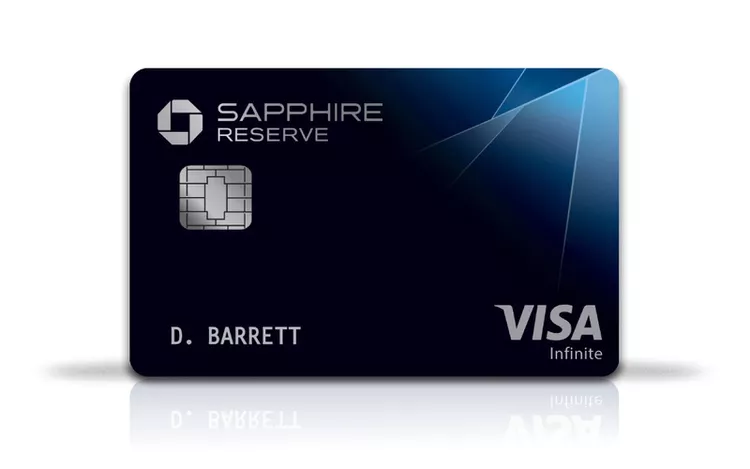
The Chase Sapphire Reserve® is a super-premium travel credit card that offers high cash back on travel and dining and on all other purchases with access to premier travel perks, comprehensive travel insurance, and more. It is primarily aimed at the customer who travels often and has a desire for luxurious rewards and opportunities.
APR: 22.24% – 29.24% Variable APR

Pros:
No Foreign Transaction Fees: No extra charges on international purchases.
High Rewards Rates: Earn 3x Points on purchases made at restaurants, takeout, delivery services, and on flights redeemed through Chase Ultimate Rewards®, 1x points on all other purchases.
Sign-up Bonus: Extremely valuable sign-up bonus that can be worth a lot in travel rewards.
Travel Credits: $300 per year of travel credit, that can be applied to any travel expenses.
Travel Insurance: Comprehensive coverage including trip cancellation/interruption insurance, auto rental collision damage waiver, and baggage delay insurance.
Airport Lounge Access: Access to over 1,300 airport lounges around the globe with the Priority Pass Select membership.
Flexible Redemption: Rewards are also 50% more valuable when booked through Chase Ultimate Rewards for travel.
Transfer Partners: Redemption can be made to a number of airline and hotel reward programs at a 1:1 ratio.
Cons:
Annual Fee: $550, which is high but the travel credits and the benefits cover the difference.
High Credit Score Requirement: Usually, approval depends mostly on the high credit score of an applicant.
Complexity: It may be necessary to gain more knowledge about the rewards program and travel benefits in order to maximize the benefits.
4. Citi Premier® Card:
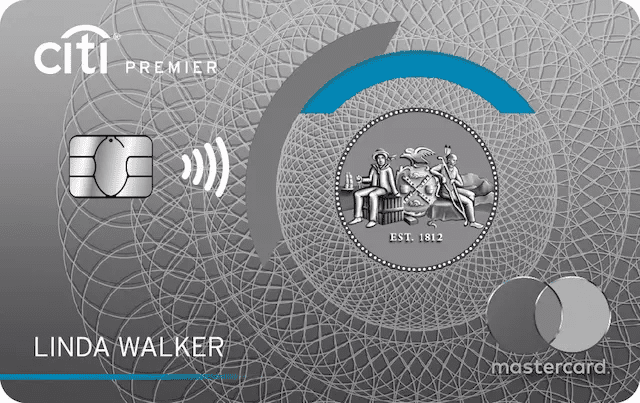
A versatile travel card that offers high rewards rates on travel and dining and has the capacity to transfer earned points to other frequent flyer programs.
APR: 21.24% – 29.24% Variable APR

Pros:
No Foreign Transaction Fees: Cost-effective for international travel.
High Rewards Rates: 3x points for expenses on air travel, hotels, and restaurants, and 2x points for entertainment.
Sign-up Bonus: Competitive bonus points offer.
Travel Insurance: Travel accident insurance, as well as trip cancellation/interruption insurance.
Transfer Partners: Award points can be redeemed for other airline loyalty programs.
Cons:
Annual Fee: $95, which may deter some users.
Complex Redemption: Points can have differing values when redeemed with partners.
Customer Service: Mixed reviews on Citi’s customer service for credit card holders.
5. Bank of America® Travel Rewards Credit Card:
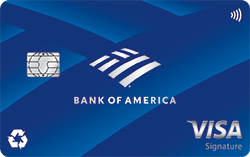
A no-annual-fee travel card with a straightforward, flat-rate rewards system and no foreign transaction fee, makes it an ideal travel companion for the frugal traveler.
APR: 18.24% – 28.24% Variable APR

Pros:
No Foreign Transaction Fees: Perfect for travelers who can’t afford extra charges.
No Annual Fee: Ideal for those people who are on a small budget.
Flat-Rate Rewards: 1.5x Points for all purchases, straightforward and convenient to use.
Sign-up Bonus: Competitive bonus for new members.
Travel Insurance: It also includes travel and emergency assistance services.
Cons:
Lower Rewards Rate: 1.5x points may be less compelling compared to cards with higher category bonuses.
Limited Travel Perks: Lesser travel-related benefits than the other premium travel cards.
No Transfer Partners: Points cannot be transferred to travel loyalty programs.
Tips on Earning and Redeeming Rewards for Maximum Value:
Strategic Spending:
- Know Your Categories: Determine which categories will get bonus points (e.g., travel or dining) and make the necessary purchases with the card.
- Everyday Purchases: To gather points or miles more quickly, ensure that you utilize your travel card for all your purchases, not only for travel expenses.
Redemption Strategies:
- Travel Portals: For Your travel-related expenses such as flights, hotels, rental cars, etc. it’s usually better to use your card issuer’s travel portal (like Chase Ultimate Rewards).
- Transfer Partners: Transfer points to airline and hotel loyalty programs where you can sometimes receive more value per point than direct redemption.
- Avoid Cash Redemptions: Redeeming points for cash back or statement credits usually offer lower value than travel redemptions.
How to Avoid Un-necessary Fees?
Annual Fees:
- Evaluate Benefits: Check that the card’s worth (the rewards, travel credits, insurance) exempts the annual fee.
- Downgrade Options: In case the fee is not reasonable enough, you can opt for a no-annual-fee version of the card.
Foreign Transaction Fees:
If you are traveling to another country, you should choose such cards that do not charge high fees for international transactions.
Interest Charges:
- Pay in Full: You should always ensure that you clear your balances every month to avoid interest charges.
- Avoid Cash Advances: These often come with high fees and immediate interest.
Late Fees:
Set Up Auto-Pay: Always meet your due dates by automating payments.
Strategies for Meeting Spending Requirements to Earn Bonuses:
Understand Requirements:
Find out whether there is a spending limit that you have to meet to be eligible for the bonus and the duration within which it must be achieved.
Planned Spending:
Large Purchases: Time large or planned purchases (e.g., electronics, furniture) in order to meet the minimum spend limit.
Bills and Subscriptions: Use your card to pay for monthly utilities and other services.
Gift Cards:
Purchase gift cards for specific stores where you frequently shop, to ensure that you meet the minimum purchase requirements.
Authorized Users:
To meet the spending requirement faster, you can include more authorized users.
How Using Multiple Cards Can Maximize Benefits:
Category Optimization:
Bonus Categories: Utilize cards that give the major bonuses in different categories (i.e. using one card for travel expenses and another for eating out).
Everyday Spending: Get a card that gives higher points/rewards on all the spending you do.
Welcome Bonuses:
Apply for multiple cards over time to take advantage of several sign-up bonuses.
Pooling Points:
Transfer points between multiple cards under the same rewards plan and make bigger redemptions.
Backup Strategy:
It is recommended that people have more than one card to make sure that in case one card is lost, stolen, or blocked, a person will still be able to use another one.
Practical Tips for Using Credit Cards in Europe:
Chip-and-PIN Technology:
In Europe, chip-and-PIN is favored by many countries instead of using chip-and-signature technologies. A card with chip-and-PIN functionality will be accepted in more places, especially those where there are self-service machines (e. g. ticket machines at train stations, and parking meters).
Currency Exchange Rates:
It is important to note that credit cards offer the best exchange rates compared to the rate obtained when changing cash. When given the option, always select to be charged in the local currency instead of USD in order to avoid fluctuations of dynamic currency conversion fees.
Emergency Contact Information:
Keep a list of emergency contact numbers for your card issuers in a secure place separate from your cards. This can be helpful if your cards are lost or stolen.
Backup Cards:
Always have at least one backup card in case your main card gets declined or denied. Choose a card from a different network (e.g., one Visa and one Mastercard) for broader acceptance.
Frequently Asked Questions:
Are travel credit cards secure to use abroad?
Yes, travel credit cards with EMV chip technology offer enhanced security compared to magnetic stripe cards. Additionally, many cards offer fraud detection and zero-liability protection.
Will my travel credit card be widely accepted in Europe?
Visa and Mastercard are widely accepted across Europe. American Express has more limited acceptance, so carrying a Visa or Mastercard is recommended.
What fees should I be aware of when using my travel credit card abroad?
Look out for foreign transaction fees (typically 3%), which can be avoided by choosing a card with no foreign transaction fees. Be aware of dynamic currency conversion fees and always choose to be charged in the local currency.
What should I do if my credit card transaction is declined abroad?
First, try the transaction again. If it’s still declined, contact your card issuer using the international contact number provided. Always inform your issuer of your travel plans to prevent declines due to suspected fraud.
How can I contact my card issuer from abroad if I encounter issues?
Use the international contact number found on the back of your card or on the issuer’s website. Consider using Wi-Fi calling apps to avoid international call charges. Keep a list of these numbers in a secure place separate from your cards.
What steps can I take to prevent my card from being declined while traveling
Notify your card issuer of your travel plans before you leave. Set up transaction alerts to monitor for any unusual activity and ensure your contact information is up to date.






